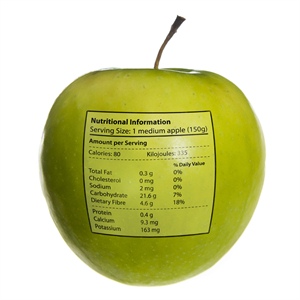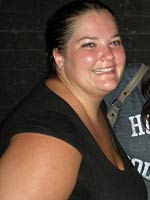Can Specific Proteins and Carbs Keep Weight Off?
We have always heard that "calories in versus calories out" is the hard and fast rule when it comes to weight loss. Of course, being mindful of calories is important because consistently taking in more calories than you need will ultimately lead to weight gain and possibly subsequent health problems. What will always hold true is the fact that consuming more calories than your body burns causes weight gain. However, new research has found that the types of foods, specifically the types of proteins and the glycemic load of a meal, may be more effective at preventing weight-gain long-term than simply counting calories alone.
The Research
New research from Tufts University published in the April 2015 issue of The American Journal of Clinical Nutrition revealed several interesting findings regarding glycemic load and specific changes in types of proteins consumed, and how the relationship between the two affected long-term weight status. This study included 120,784 adults who were followed for 16 years. Glycemic load is a measure of two things: the total amount of carbohydrates ingested and the carbohydrate quality, determined by how much blood sugar levels are raised.
Researchers found that people gained significantly more weight when their glycemic load increased. An example of how glycemic load looks in terms of foods you might eat: the glycemic load of a bagel made with white flour is 25 units, while the glycemic load of one serving of quinoa clocks in at approximately 13 units, and the glycemic load of a serving of beans is about 3 units.
Another interesting finding was that certain proteins, including red meat, processed meat and chicken with the skin on, were associated with weight gain. Milk, peanuts, legumes and eggs did not show any correlation with weight gain, while peanut butter, yogurt, nuts, skinless chicken, seafood and reduced-fat cheese were associated with some weight loss.
What else did this research reveal? It seems that a higher intake of eggs, full-fat cheese and whole milk did not cause weight gain unless the glycemic load increased, and if people had a lower glycemic load, the higher intake of eggs and full-fat dairy products was actually correlated with weight loss. What does this all mean? Researchers postulate that when people consume low-fat dairy foods, they may compensate for the reduction in calories by eating more carbohydrates. It seems that the amount of fat in dairy foods and eggs did not make a significant difference in long-term weight status, and that if people ate more low-fat dairy products but then also ate more refined carbohydrates (thus, increasing glycemic load) in place of those higher-fat dairy products, they gained weight. In fact, people who ate full-fat dairy and eggs with low-GI foods (such as non-starchy vegetables) actually lost weight.
What's the Big Picture?
When we uncover new data such as the findings from this research, we have to consider the "take-home" message. The take-home message here: choosing low-fat foods and focusing too much on calories may not be the best way to lose weight. Selecting the right combination of foods may be more beneficial. People can no longer say fat is evil, and replacing fat with a bunch of refined carbohydrates has not been the solution. In fact, it has been detrimental to health. Focus on eating complex carbs: vegetables, fruits and whole-grains, with healthy proteins such as nuts, seeds, skinless chicken, fish, yogurt and legumes. Balancing the foods you eat with exercise is still essential to long-term health.

Kari Hartel, RD, LD is a Registered, Licensed Dietitian and freelance writer based out of St. Louis, MO. Kari is passionate about nutrition education and the prevention of chronic disease through a healthy diet and active lifestyle. Kari holds a Bachelor of Science in Dietetics from Southeast Missouri State University and is committed to helping people lead healthy lives. She completed a yearlong dietetic internship at OSF St. Francis Medical Center in Peoria, IL, where she worked with a multitude of clients and patients with complicated diagnoses. She planned, marketed, and implemented nutrition education programs and cooking demonstrations for the general public as well as for special populations, including patients with cancer, heart disease, diabetes, Alzheimer's disease, obesity, and school-aged children.
-
How High Protein Diet Is Effective For Rapid Fat Loss
Protein is raw building material for the human body. Each year your bo
-
Gain Muscle and Lose Fat At The Same Time In The Company Of Tom Venuto
The age old question of 揌ow can I add mu
-
Are You Willing To Make Your Body Healthy?
If youre like most, then you possess began in addition to ceased a num
-
Weight Loss Natrually and Be Energized Too
The key to successful weight loss is und
-
Positive Weight Loss Approach
You may delay, but time will not. - Benjamin Franklin30), act fast! CD
-
Precisely How Mindless Eating Will Sabotage Your Diet And Ways To Avoid It
You are surrounded by chances to eat foods that will break your diet p
- DON'T MISS
- The HCG Diet -What To Expect?
- Skin Care for All Ages
- The #1 Thing Derailing Your Weight Loss: A Doctor Explains
- Thinking About Trying Weight Loss Patches
- Chinese Weight Loss Techniques
- Which Diet Plan?
- Best Weight Loss Website
- Burn Your Fat And Lose Weight With A Fat Burning Diet
- To Be Or Not To Be Low Carb
- What Kind Of Equipment Should Be Found At Lap Band And Weight Loss Surgery Clinics?




